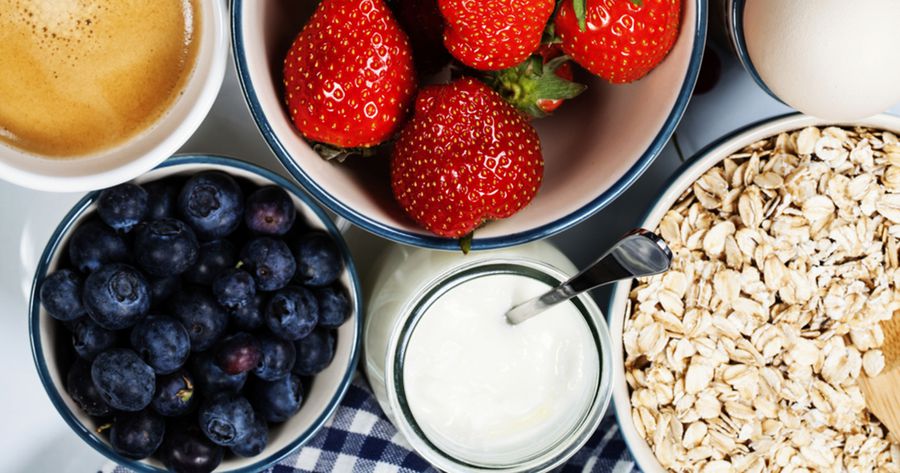
Even if you eat well and meet your fitness and wellness goals, sometimes a perfectly justifiable meal out or an indulgent evening of boozing (hey, a girl’s gotta live a little) can leave you feeling like you’re back at square one the next morning. While you may logically know that bloating happens to everyone and that there are a multitude of causes (salty restaurant food and alcohol among them), feeling heavy feels-ugh-less than stellar.
There are a million and one articles out there about what to eat to banish bloat. But when you wake up feeling crummy, you’re kind of beyond caring whether some magic blue unicorn juice you can only get at this one café in Los Angeles will prevent bloating. (Yeah, you could have also alternated those glasses of champagne with water last night, but it was Veuve Clicquot and you were having a great time.)
Don't despair-all you have to do is make breakfast instead. Some people might think that starving yourself after a big night out is the best way to get back on track, but it's not. In fact, doing that can wreak havoc on your blood sugar and mood, setting you up to overeat later. (You are probably beginning to see a pattern, right?) Starting your day with a balanced meal, on the other hand, will fuel you well to get back into your usual groove. And just like a back-at-it gym session, eating a regular meal helps get digestion back to normal.
The best news yet: You might already have some of the best bloat-beating foods in your kitchen right now. These are my top picks.
Asparagus: Asparagus has a mild diuretic effect and is also a potent source of the antioxidant glutathione, which has been noted for its detoxifying effects.
Avocado: The fruit is high in bloat-soothing potassium as well as filling fiber and healthy fats.
Banana: Banana is another potassium-rich food and also provides gut-nourishing resistant starch.
Cucumber: It contains silica, caffeic acid, and vitamin C, all of which help reduce swelling and minimize water retention. The high water content also helps you rehydrate.
Eggs: A great protein source that also provides filling fat. They offer instant portion control, at about 70 calories each.
Kefir: The fermented yogurt beverage is packed with beneficial probiotic bacteria. It's also very low in lactose and may be suitable for people who can't tolerate other dairy. Just go for unflavored to avoid extra calories and stomach upset from added sugar.
Lemon water: Citrus has a mild diuretic effect, and lemon juice in warm water helps you rehydrate and gently stimulates digestion.
Melon: Another great source of potassium and helps you rehydrate.
Papaya: Contains an enzyme called papain, which facilitates digestion and can help ease gas and bloating.
Spinach: Another good source of potassium, fiber, and vitamin C. It may break down more easily than some other dark leafy greens like kale, which means it's less likely to kick up gas.
Sweet potato: High in potassium and a slow-burning complex carb. It helps keep your blood sugar stable.
Tomato: Packed with potassium and has a high water content.
Now, here are some ways to put those de-bloating foods to good use:






































